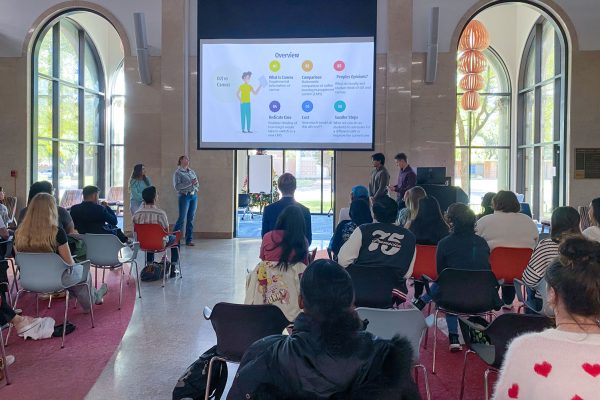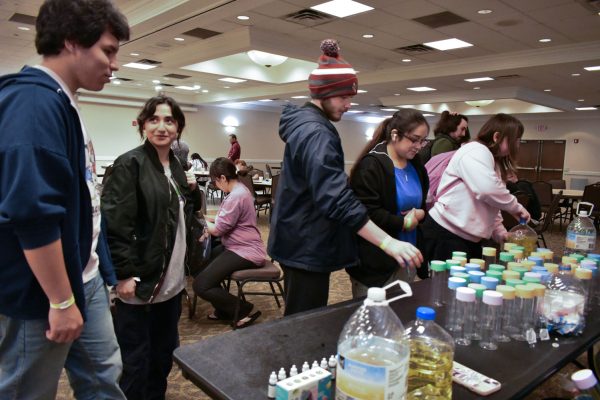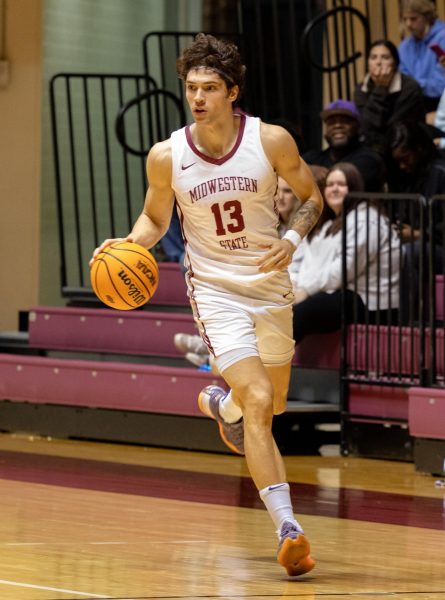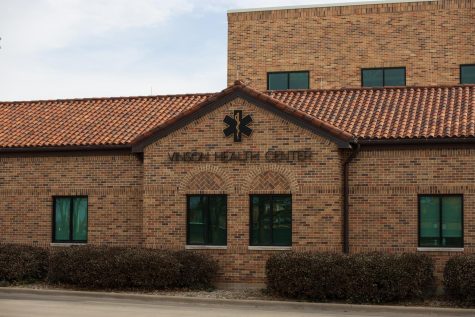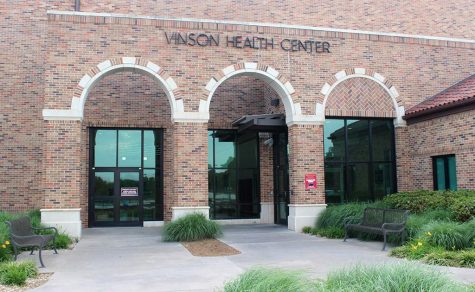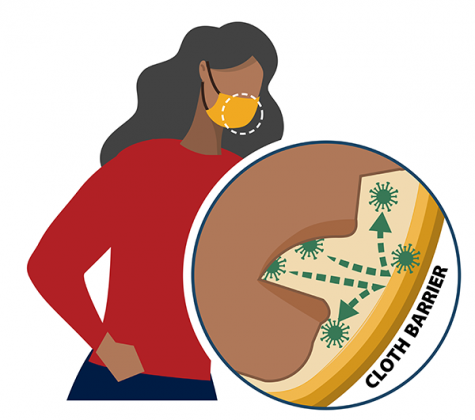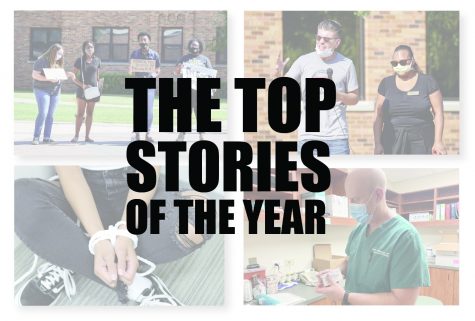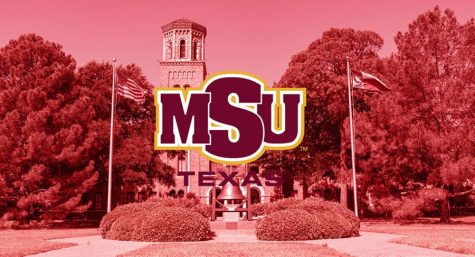MSU Texas announces new face mask policy
Wednesday, July 1 at 11:02 a.m., MSU Texas president Dr. Suzanne Shipley announced via Postmaster the implementation of a policy that will require students to wear face coverings to prevent the spread of COVID-19 on campus.
The email stated that face masks must be worn by students, faculty and staff in all campus buildings, including all in-person classes. Students will be allowed to take off their coverings in their private dorm room and when eating or drinking. The changes will take place Monday, July 6.
“[MSU is] not really requiring this until Monday, so that people have time if they don’t have a mask to get one, to think about what kind they like and how they’re going to wear it. This doesn’t happen overnight; people don’t change habits overnight,” Shipley said.
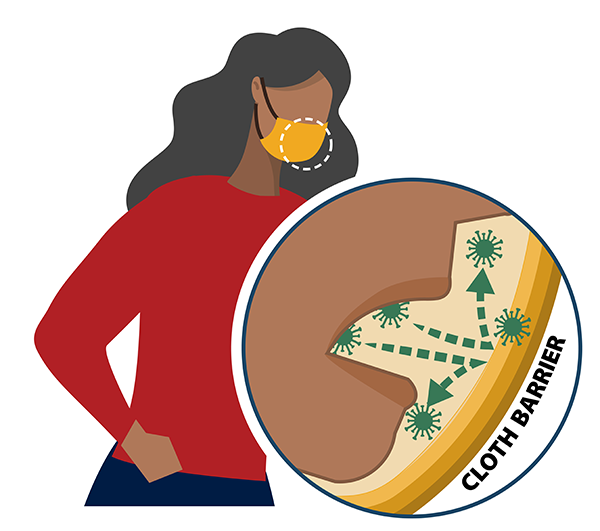
Some businesses have had strict requirements on the type of face masks that can be worn on their premises, but the university is enforcing a more relaxed policy. However, the covering must be able to prevent the spreading of germs through bodily functions such as coughs or sneezes.
“Anything that is a facial covering [can be worn]. If we come in and somebody’s got see-through netting that doesn’t stop saliva or liquid from coming out then that won’t be acceptable. I think people are understanding that [face coverings] can be a silk scarf, bandanna or a mask,” Shipley said.
Shipley said the university’s intention was always to have in-person instruction for the Fall 2020 semester, owing in some part to backlash from students opposed to online classes.
“We’re very committed to returning to campus in the fall. All of the measures that we are encouraging people to take are going to be implemented, so that we can return to campus safely and have in-person instruction, because that’s what our students have told us they want, and that’s what we want,” Shipley said.
The postmaster included a video of Dr. Keith Williamson, MSU’s medical director, answering questions related to using a mask. Williams said that wearing face masks is more about protecting other students, professors and others around you that may be more vulnerable. Williamson acknowledged that this approach can be confusing and frustrating to some.
“[Wearing a mask] isn’t going to help you. If you wear a mask, it’s going to help everyone else, and if everyone else wears a mask it helps you. That kind of lack of control and uncertainty makes people uncomfortable,” Williamson said.
hhbhbhbhbhb
Faculty and staff will not be required to wear face masks when they are in their private workspaces or offices and when they are instructing in their classroom, provided there is at least 10 feet between the professor and their students. However, due to the small sizes of some classrooms, many professors will likely find themselves wearing a face covering while teaching.
“[10 feet] is a long way in the classrooms we have, so I think a lot of faculty will be using masks when they teach. I know over in McCoy [School of Engineering] they’ve gotten in the habit of having masks on the minute they get in the building. I think in some areas, it’s going to be much more prevalent where you won’t see faculty without a mask,” Shipley said.
Outside of the new face mask policy, more COVID-19 charged changes will be coming to the classroom for the upcoming semester. Changes include students having to be six feet apart within the classroom, introducing seat markers to help students maintain that distance and the implementation of a new style of hybrid learning for when classrooms are full.
“The difference you’ll see is that if you can’t get everybody into the space safely that the class occurs in, because people will be six feet apart, you may be coming in on one day and not on the other day or two. You might be in via camera, and so your hybrid learning might supplement more of your in-person than you’ve seen before, but in-person is our goal as much as possible. That’s all within the realm of keeping people safe,” Shipley said.
The new policy announcement caused some students to raise concerns regarding the university’s decision to have in-person classes in the first place.

Ryan O’Malley, sports and leisure studies senior, voiced mixed feelings about the new face mask policy but was critical of the fact that MSU Texas canceled in-person classes when there were much fewer COVID-19 cases.

Shipley defended the university’s decision to close campus last March and reopen this August by stating that the COVID-19 pandemic was newer and more uncertain than it is now. Shipley now feels that people are more informed and in a better position to safely prevent the spread of the virus while attending classes.
“Well, it’s just a whole different situation… We’ve learned a lot since the pandemic broke onto the national and international scene, and I think a lot of us have learned from each other how we can live with this, and live through it, and get on the other side of it, rather than just stop everything. The first thing all of us were told we needed to do and thought we needed to do [in March] was stop. Now, we’ve learned how to live with this as safely as possible, and that’s what we intend to do,” Shipley said.
While there has been significant backlash from some students regarding MSU”s new face mask policy and treatment of COVID-19 in general, there are many students who support the new policy. 86 twitter accounts responded to an official The Wichitan twitter poll that asked: “Will requiring a face mask make you feel safer on campus in the fall at @MSUTexas?” Of those 87 users, approximately 58% voted yes, 32% voted no and 10% chose the option stating, “it doesn’t affect me.”
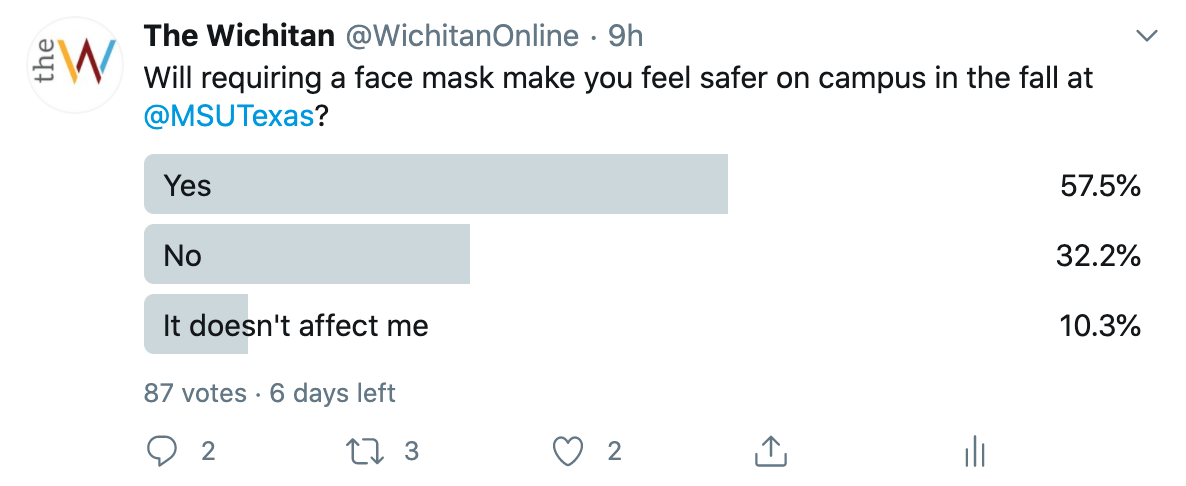
Williamson said that he is working towards making screening and testing available for MSU students, particularly those entering the dorms, but he told students not to expect free tests this semester. He said, while tests and masks are important, the biggest step students can take to keep themselves and others healthy is to self-screen.
“People have to screen themselves honestly and openly every day. [They need to ask themselves,] ‘How do I feel? Do I have a fever?’ Everybody should have a thermometer and check their temperature at least once a day. If you’re sick, stay home,” Williamson said.
The new face mask requirement is just one of the many ways Shipley hopes to create an environment and culture that can prevent the spread of COVID-19.
“It’s going to take a lot of time for us to all be educated about this. It’s not about punitive measures right away; it’s about getting our culture used to doing the right thing so everybody is safe,” Shipley said.
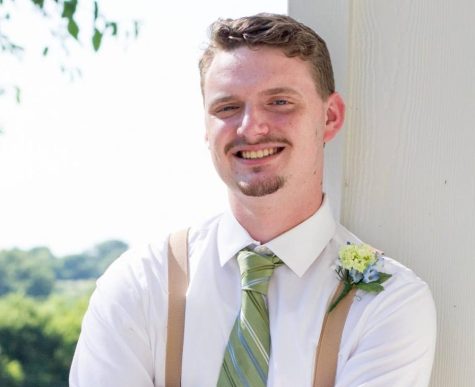
Hi there! My name is Amos Perkins, and I am currently the editor in chief of The Wichitan. I am a 4-8 grade social studies education senior hoping to graduate...



